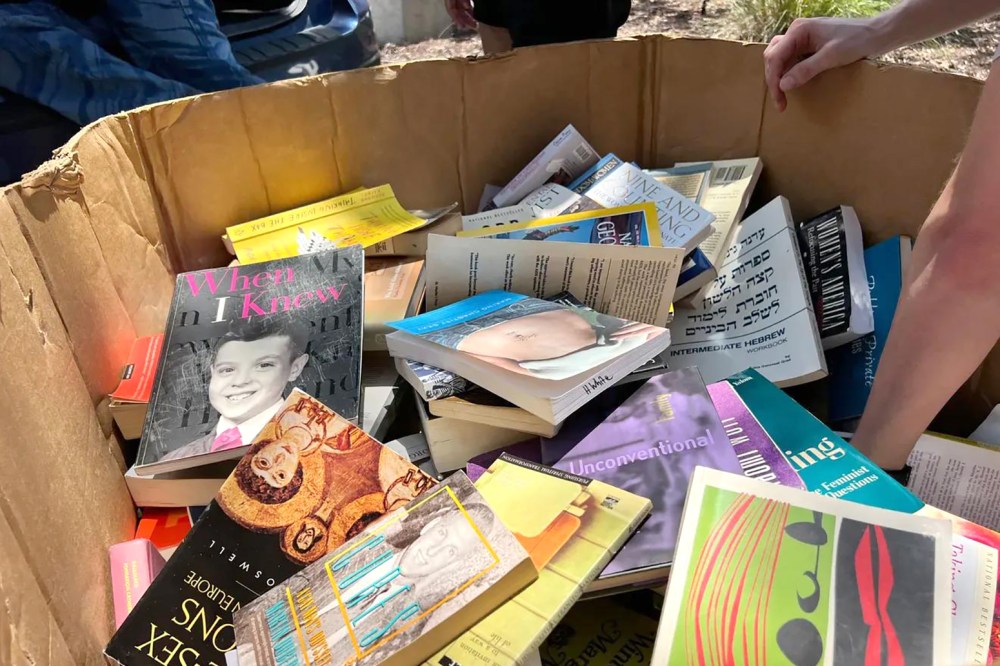On a quiet Tuesday afternoon in August, just a week before students were due to return to campus, the administration of New College of Florida emptied the library of the college’s Gender and Diversity Center by putting those books in a dumpster. They were joined shortly afterward by books from the main library, most on topics related to religion and LGBTQ+ issues.
According to the Sarasota Herald-Tribune, New College claimed that by law it couldn’t donate or sell the books, but that’s false — it could have sold or transferred the property, so long as any sale was open to the public. In the past, if space needed to be made and old books removed, students were notified and many of books were claimed. But that didn’t happen here.
The book purge happened in the summer, before anyone returned to campus — and as the Herald-Tribune reported, students said they weren’t notified — and before long the vast majority were carted off to the landfill. The books included “When I Knew,” a collection of essays about queer self-discovery; an intermediate Hebrew language workbook; and a classic work of medieval European history, John Boswell’s “Same Sex Unions in Premodern Europe.”
New College of Florida emptied the library of the college’s Gender and Diversity Center by putting those books in a dumpster.
Christopher Rufo, a right-wing culture warrior appointed by Gov. Ron DeSantis as a trustee of New College, has espoused a vision for the college as a “public university, open to all, in which exceptional students of any background can participate in the great tradition of the West.” As part of that new mission, Rufo and the rest of the trustees spearheaded the removal of the program in gender studies at New College, claiming that the discipline was “ideological activism” and that it didn’t fit with the mission of a university.
Students and faculty — the ones most affected by this decision — strenuously objected, but were ignored. The dumpster full of books completes this mission that began in August 2023. Rufo posted on X, “We abolished the gender studies program. Now we’re throwing out the trash.” So much for the university’s protestations of innocence.
Although it may seem paradoxical, Rufo’s evocation of “western civilization” sits squarely within a tradition of authoritarians controlling access to knowledge, taking books away from people “for their own good.” There’s lots of history of right-wing takeovers of universities during the 20th century, including the destruction of books about gender and sexuality in 1930s Germany, but as medievalists we see comparisons that stretch further back — much further back.
In 1240, King Louis IX of France (also known as St. Louis) decided, without consulting the Jewish community, that the Talmud — the primary text of Jewish law — was “dangerous.” He decided that, in fact, this sacred book that had been used for nearly a millennium was heretical and that the Jews had strayed from “Biblical Judaism” and into error with their newfangled medieval Rabbinic Jewish practice. Louis IX, he told himself, was just the guy to help them out.

The Talmud was put on trial, the book literally prosecuted by the chancellor of the University of Paris, the bishop of Paris, the archbishop of Sens and other Christian clerics, with the “case” presided over by Louis’ mother. But the outcome was predetermined. Even as the Jewish community protested, the king seized all the manuscript copies of the Talmud he could lay his hands on. Then, in June 1241, in a square in Paris just across the river from Notre-Dame, he burned those cartloads of books.












